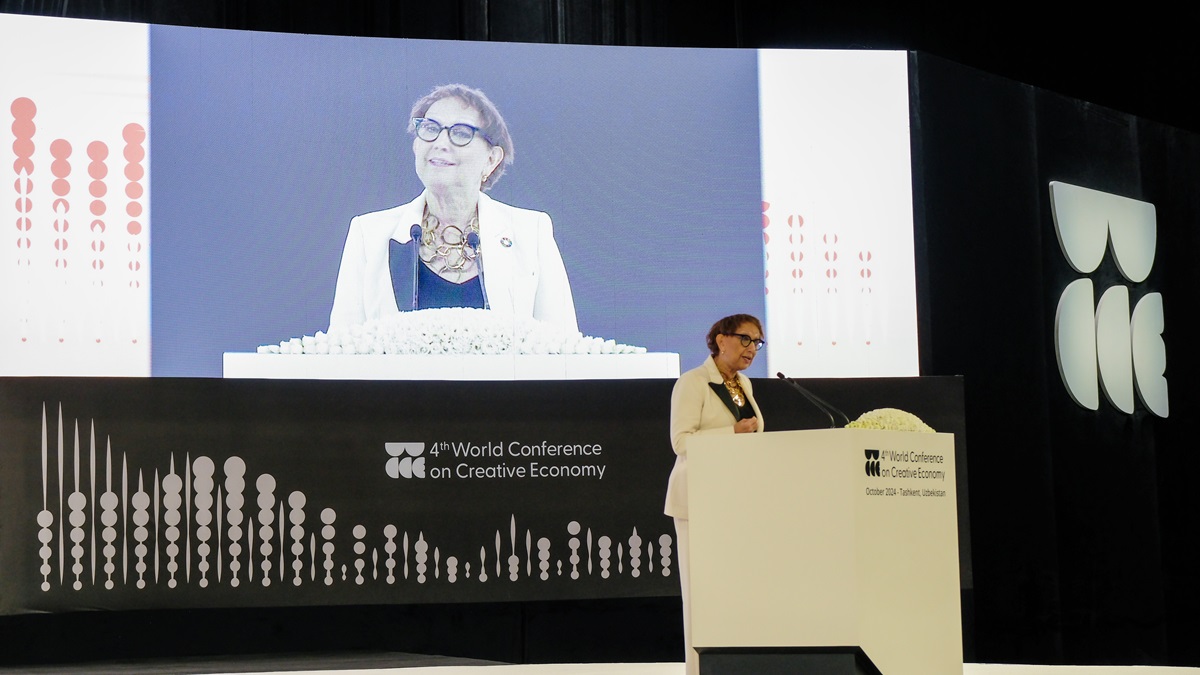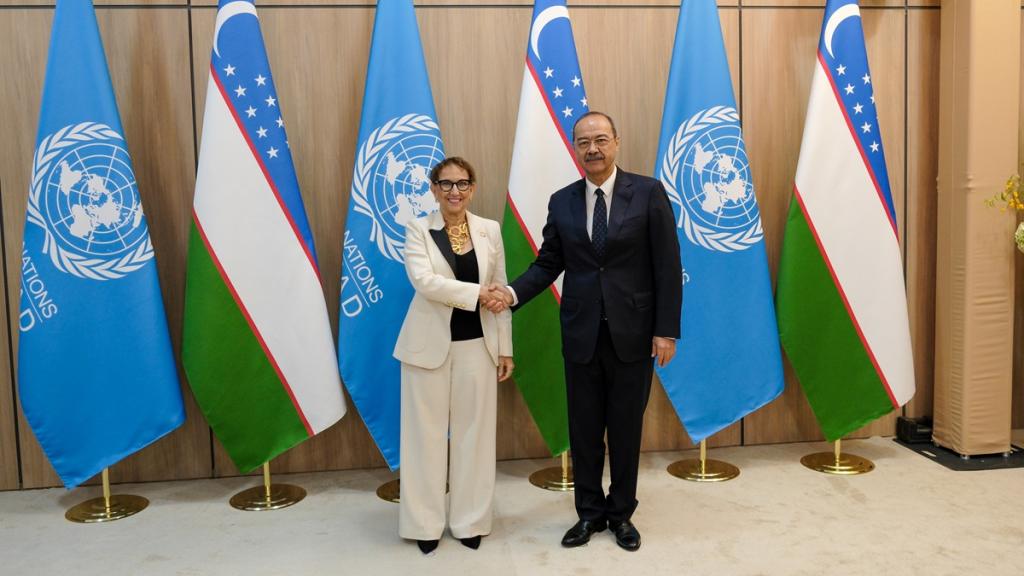The creative sector holds immense promise for economic and social empowerment. But there’s much more to do to extend its benefits to everyone, everywhere.
© UN Trade and Development/Gustavo Barreto| Secretary-General Rebeca Grynspan addresses the 4th World Conference on Creative Economy that opens on 2 October in Tashkent, Uzbekistan.
Secretary-General Rebeca Grynspan is making an earnest call to leave no one behind in the creative economy, a burgeoning sector of potential for the economy and society.
“As I always say, talent is the best distributed thing in the world; what is not well distributed are the opportunities,” the UN Trade and Development (UNCTAD) chief notes in her remarks to the 4th World Conference on Creative Economy. See photo highlights.
The conference, held from 2-4 October in the Uzbekistani capital of Tashkent, centres around the theme “Inclusively Creative: A Shifted Reality”.
As UN Trade and Development outlines in its latest Creative Economy Outlook, technological shifts – such as digitalization and artificial intelligence – profoundly impact the production and consumption of creative goods and services, generating opportunities for some and challenges for others working under informal and precarious conditions.
While technology makes it easier nowadays for creators to reach global audiences, such democratization of creativity also brings to the fore issues linked to intellectual property rights, fair compensation and competition policy.
Creative industries: A force pushing us forward
The creative economy by nature is an evolving concept, largely involving goods and services based on creativity and intellectual capital as primary inputs.
Some examples can be audiovisual products, design, media, music, performing arts, publishing and visual arts.
Over the last ten years, creative exports have tripled, now making up one fifth of global service exports.
A recent survey by UN Trade and Development also shows the creative economy accounting for up to 7.3% of GDP and 12.5% of workforce in countries where data is available.
As the global economy continues to reel under low growth, high debt, weak trade and investment, the creative sector has taken on heightened significance as a catalyst for innovation and economic diversification.
“In this challenging context, the creative economy is a force that is pushing us forward,” says Secretary-General Grynspan.
“Let us harness its power to create a world where everyone has the opportunity to express their creativity, contribute to their communities, and thrive in a future that is both inclusively creative and sustainably prosperous.”
New project boosting Uzbekistan’s creative economy
The endeavour, supported by UN Trade and Development, aims to strengthen and promote Uzbekistan’s creative economy, and develop a comprehensive action plan focused on data, capacity building and inclusivity.
It seeks to help the landlocked Central Asian nation expand creative goods and services trade, enhance the competitiveness of its arts and culture industries by fostering tourism, cultural exchange and long-term economic growth.
While in Uzbekistan, Secretary-General Grynspan also meets with Prime Minister Abdulla Nigmatovich Aripov and and his senior cabinet officials, including:
- Jamshid Kuchkarov (Deputy Prime Minister and Minister of Economy and Finance)
- Abdukhakimov Aziz Abdukakharovich (Minister of Ecology, Environmental Protection and Climate Change)
- Sharipov Kongratbay Avezimbetovich (Minister of Higher Education, Science and Innovation)
- Laziz Kudratov (Minister of Investment, Industry and Trade)
- Saidov Bakhtiyor Odilovich (Minister of Foreign Affairs)
- Gayane Umerova (Chairperson of Uzbekistan Art and Culture Development Foundation)
© UN Trade and Development/Gustavo Barreto | Secretary-General Rebeca Grynspan (left) meets with Prime Minister Abdulla Nigmatovich Aripov of Uzbekistan in Tashkent on 2 October.


